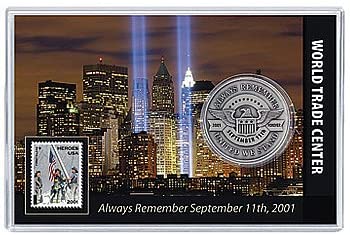W.J. Astore
The 20th anniversary of the 9/11 attacks has come and gone. The theme I often heard was “never forget.” Never forget what, exactly? That we were attacked? All of us of a certain age remember 9/11. We remember where we were when we first heard the news. We remember the shock, the confusion, the sense of loss. We really don’t need to be reminded to “never forget.”

A similar phrase is “always remember.” Like “never forget,” it’s remarkably labile, much like Obama’s slogans of “hope” and “change.” And that’s the point. It’s vague while being emotive. It plays on our emotions without encouraging us to think.
So, let’s think critically for a moment. What should we “never forget”? We should never forget the victims, of course. The heroes. The first responders who gave their lives. And, by the way, why is Congress always so reluctant to provide health care to those first responders who worked so tirelessly in the dangerously unhealthy rubble of the Twin Towers? Let’s not forget them in their moments of need.
But what else shouldn’t we forget and “always remember”? I think we should remember the colossal failure of the Bush/Cheney administration to act on intelligence that indicated Al Qaeda was determined to strike in the U.S. We should remember the chaos generated by those attacks, and how our government responded so slowly, and with a measure of panic. And we should remember how quickly men like Bush and Cheney and Rumsfeld deflected any blame and took no responsibility for what can only be described as a massive defeat.
Also, it’s important to recall that 15 of the 19 hijackers were Saudi nationals, yet America’s leaders chose to invade Afghanistan and Iraq after announcing a global war on terror. In short, they used 9/11 as a pretext to embark on wars that they wanted to fight, wars of choice that proved disastrous, and for which they’ve largely evaded responsibility.
As a military historian, I’m also taken aback by our leaders choosing to rebrand 9/11 as “Patriot Day.” When the Japanese attacked Pearl Harbor on December 7th, 1941, America’s leaders didn’t rebrand that day as an occasion for patriotism. They recognized it was a date of infamy and declared war on the attacker.
It’s almost as if 9/11 has become a date of victimhood for the U.S. An old Air Force buddy of mine put it well recently in a message to me:
“It felt like it wasn’t about remembrance as much as just wallowing in self-pity. Interesting you bring up Pearl Harbor. Back then we went off and fought a 4-year war, beat our enemy, and helped them rebuild. For 9/11, we went off and fought a 20-year war, came home with our tails between our legs, and left our enemy more empowered. A celebration of victimhood, but not of honor.”
I like my friend’s appeal to honor. It’s an old-fashioned word that you hear rarely in America’s offices and corridors of power. Where is the honor in turning the 9/11 calamity into some kind of celebration of victimhood and patriotism?
As a historian, of course I want 9/11 to be remembered. But let’s not allow propaganda and cheap sentiment to shape our memories. And let’s “never forget” the failures of our leaders both before and after that date of infamy.

